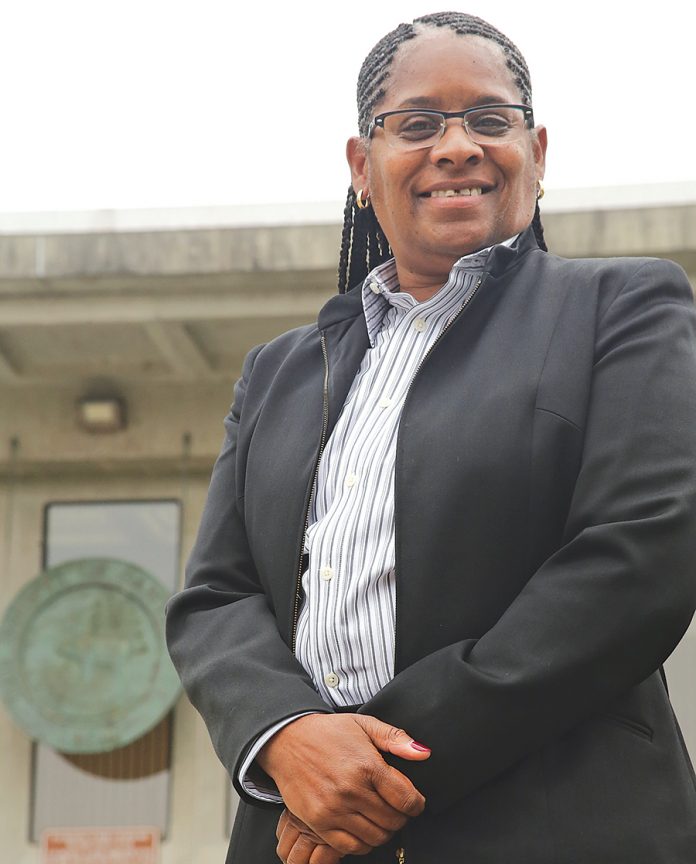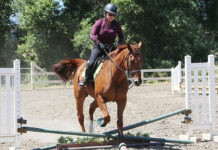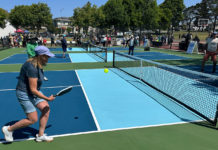
SANTA CRUZ COUNTY—Beginning in December, Santa Cruz County will have another tool in its belt to tackle crime, one considered an alternative way to help the community, victims and offenders find solutions to deal with low-level crimes.
The Santa Cruz Neighborhood Courts program will use trained citizen volunteers—called panelists—to determine the outcome for offenders who commit any of 12 low-level misdemeanor crimes.
Each conference consists of three panelists, the offender and the victim. Participation is voluntary. Organizers say it reduces the caseload for the overburdened court system, reduces reoffense rates and allows offenders to keep criminal convictions off of their record.
“We’re taking low-level misdemeanor offenses, and instead of routing them through the traditional criminal justice system we’re going to reroute them through the community,” said program coordinator Elaine Johnson.
The Santa Cruz County District Attorney’s Office is now recruiting volunteers.
Each case would start with a referral from the Santa Cruz County District Attorney’s Office.
The Santa Cruz County District Attorney’s Office is holding a series of four town hall meetings throughout October to highlight and explain the Neighborhood Courts program.
During the neighborhood court sessions, offenders must first take responsibility for the harm they have caused, Johnson says. “This conference gives the participant the opportunity to take a look at who they think they may have harmed,” she said.
After that, three panelists will work with the offender to come up with a list of “directives,” or reparations, they must complete. This can include letters of apology and community service, which ideally would be tailored to the offender, Johnson says.
“We’re not just looking at reducing the reoffense rate,” Johnson said. “We’re also looking at how we can make the community, the participant and the victim whole. So we want to set them up to be successful.”
Offenders then have two months to complete their directives. If unsuccessful, the case will be redirected to the District Attorney’s Office, Johnson says.
The idea for neighborhood courts got its start in 2012 in San Francisco, which now has 10 separate programs spread throughout the city. Similar programs have since launched in Los Angeles and in Solano, Santa Clara and Yolo counties.
Los Angeles’ program has resolved 3,366 cases since its inception, and boasts a 5% recidivism rate, according to L.A. City Attorney Mike Feuer.
Yolo County District Attorney Jeff Reisig said the neighborhood court program began there in 2013 as a pilot at UC Davis to handle low-level misdemeanors.
The program went countywide in 2015 and has since expanded to handle felonies, Reisig says.
“I wanted to engage and empower communities in the process, reduce mass incarceration, restore victims and give offenders a chance to own their conduct and make things right with their victims and communities in a new holistic way,” Reisig said.
Yolo County’s Neighborhood Courts program has diverted more than 2,000 criminal cases, Reisig says, with more than 90% of offenders successfully completing the program.
Too often, Reisig says, offenders commit crimes while under the influence of alcohol or the stress of poverty. Intervention can therefore involve treatment and classes designed to help the offender improve their lives, Reisig says.
This gentler, community-driven approach—which takes both victim and offender into account—is what sets neighborhood courts apart from the traditional criminal justice system, which largely focuses on punitive measures, Johnson said.
“Neighborhood Courts will give us the opportunity to ask the participant, ‘what was going on in your life when the crime happened?’” Johnson said. “The most important thing is, it will benefit everyone in the community. To build up the health and well-being of the community, to bring the trust back into the community. This is about giving people a second chance.”
For information, or to apply to become a volunteer, visit the District Attorney’s website at: bit.ly/2SGKs5S. Or contact coordinator Elaine Johnson ne****************@*************ty.us or 454-2534.
Offenses that the Neighborhood Courts program will start with
- petty theft
- shoplifting
- vandalism
- trespassing
- disorderly conduct
- drunk in public
- misdemeanor assault and battery
- drug possession
- drug paraphernalia
- receipt of stolen property
- possession of burglary tools
Online only Town Hall series
• Series #1 with District Attorney Jeff Rosell, 4th District Supervisor Greg Caput, and Watsonville Police Chief David Honda Oct. 7 at 6pm.
Zoom meeting: zoom.us. Meeting ID: 951 5552 9700, meeting ID: 951 5552 9700 Passcode: 3j7cSZ or dial by telephone: 669-900-9128 or 253-215-8782. Meeting ID: 951 5552 9700 Passcode: 528863
• Series #2 with District Attorney Jeff Rosell, 3rd District Supervisor Ryan Coonerty, UC Santa Cruz Police Chief Nader Oweis, and Santa Cruz Police Chief Andy Mills Thursday, Oct. 8 at 6pm.
Zoom meeting: zoom.us. Meeting ID: 972 7743 5667. Passcode: K7p5Mu Dial by Telephone: 669-900-9128 or 346-248-7799 Meeting ID: 972 7743 5667 Passcode: 762967
• Series #3 with District Attorney Jeff Rosell, 5th District Supervisor Bruce McPherson, and Scotts Valley Police Chief Steve Walpole. Oct. 15 at 6pm.
Zoom meeting: zoom.us. Meeting ID: 984 0615 6310. Meeting ID: 984 0615 6310 Passcode: vRyaH1 Dial by Telephone: 669-900-9128 or 253-215-8782 Meeting ID: 984 0615 6310 Passcode: 876773
• Series #4 with District Attorney Jeff Rosell, 1st and 2nd District Supervisors John Leopold and Zach Friend, Santa Cruz County Sheriff Jim Hart, and Capitola Police Chief Terry McManus. Oct. 19 at 6pm
Zoom meeting: zoom.us. Meeting ID: 962 7695 Meeting ID: 962 7695 0374 Passcode: wdhWH6 or dial by Telephone: 669-900-9128 US or 253-215-8782, Meeting ID: 962 7695 0374 Passcode: 664614












